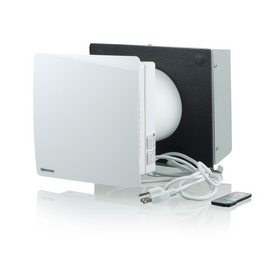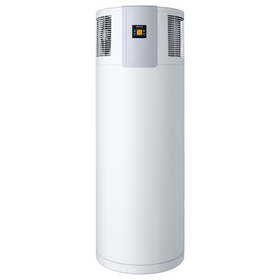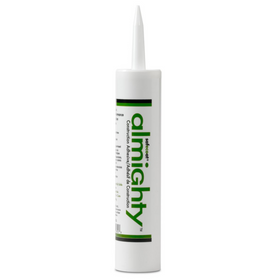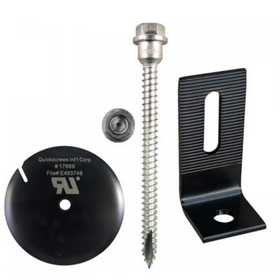
Living Off-Grid and Debt-Free: A Dog Musher’s Story
Last Updated: Feb 23, 2025The indicators of global climate change are becoming more alarming. Greenland recently lost about 4 trillion pounds of ice in just one day due to warming temperatures in the Arctic. One of the most recent reports on global climate change states bluntly that warming temperatures and more severe storms pose an “existential risk to humanity.” More and more, an ecological transition toward a more sustainable society depends on individual action.
Separating and recycling household waste, switching to LED lights, and avoiding single-use plastic bags are the first steps to help homeowners begin to understand the intricacies of a more sustainable home and lifestyle. To effectively respond to global ecological crises in the ever shorter time frames afforded to us, some homeowners are making radical changes in their lifestyles.
Finding models for a profound paradigmatic shift that prioritizes sustainability can be challenging, but we found an inspiring role model: Justin Allen. Among his many accomplishments, Justin Allen, owner of Boss Dog Expeditions and 20 frisky huskies, completed a 3,000-kilometre trek by dog sled from northern Manitoba to New Brunswick, then decided to build a 600-square-foot off-grid home in the woods of New Brunswick. While he branded Boss Dog Expeditions as an eco-tour agency, during the past year, Allen has discovered that his off-grid lifestyle is an attraction in and of itself.
Table of Contents
- Living Small, Smart, and Off-Grid
- Self-Sufficiency, Economic Independence
- Suggestions for Going Off-Grid

Living Small, Smart, and Off-Grid
Since returning from his cross-Canada trek by dog sled, Allen has been building a home completely independent of municipal or government sources of energy, water, trash collection, or any other “services” on which most homeowners rely. “For me, off-grid living makes me more conscious of how and what I consume,” he says. “It’s important for people to be more aware of how their actions directly affect the world we live in.”
Allen chose his parcel in the woods because it’s near a natural spring, which gives him access to clean drinking water and a power source. One of the first things he did was dig out a small dam along the spring and gravity feed the water to a small cistern attached to his home. A small pump powered by his solar photovoltaic (PV) system delivers water throughout the house. A tankless propane water heater provides hot water.

A 750-watt solar PV system powers the home, which Allen says is the minimum size needed without resorting to gasoline-powered generators as a backup energy source. Seven-watt LEDs light the house. He found a special refrigerator that only uses 57 watts of energy. The most significant upfront investment was the battery system or power bank. Allen has six batteries in a 12-volt system. Both the inverter and the charge controller are sized for a 1,500-watt system, which will allow him to double the solar array in the future easily. An efficient wood stove heats the well-insulated home.
Allen decided to build a small home of only 600 square feet to avoid the challenges of building permits and zoning regulations. “In New Brunswick, you don’t need a building permit for 600 square feet or less,” Allen explains. “This was a big factor for me because building permits can get expensive.” Nonetheless, he built the house to code.
While an average-sized home in Canada is around 2,200 square feet, “600 square feet is plenty for me living by myself,” Allen says. “I only have a wood stove for heat, and less square footage is easier to keep warm. The house also requires less energy.”
Self-Sufficiency, Economic Independence
Allen’s next project is installing a household micro-hydro renewable energy system. “I like my solar,” he says, “but it’s pretty inefficient. If you think about it, half of every day is dark, so 50 percent of the year, especially up here, you´re not getting any power. With a source of water flow such as a stream or brook, I can have constant 24/7 energy, and hydro systems are cheap.”
Energy Saving Products for the Home
Shop home improvement products that help save and conserve energy (power) in your home.

Vents TwinFresh Comfo RA1-50-2 Ductless Energy Recovery Ventilator
Vents
In Stock

Stiebel Eltron Accelera 300 E Heat Pump Water Heater
Stiebel Eltron
In Stock

Emporia Classic Level 2 48 AMP EV Charger UL Listed
Emporia
In Stock
2 Colors

AFM Safecoat Almighty Adhesive Case of 12
AFM Safecoat
In Stock

Stiebel Eltron CON 300-2 Premium Wall-Mounted Convection Heater - 202030
Stiebel Eltron
In Stock

AFM Safecoat 3 in 1 Adhesive
AFM Safecoat
In Stock

QuickBOLT QB2 with Microflashing Multi Roof Mount Solar Panel Fastener Kit
QuickBOLT
In Stock

Stiebel Eltron Accelera 220 E Heat Pump Water Heater
Stiebel Eltron
In Stock

Stiebel Eltron DHC-E 8/10-2 Plus Point-of-Use Electric Tankless Water Heater - 202145
Stiebel Eltron
In Stock

Stiebel Eltron CON 150-1 Premium Wall-Mounted Convection Heater - 202026
Stiebel Eltron
In Stock

He also wants to build an attached greenhouse on one side of his home, so he can grow food year-round without depending on the grocery store. His lifestyle isn't perfect, "but it feels good to be more self-sufficient," he says, "to grow and develop and learn how to live more sustainably. There is a great sense of freedom in looking after yourself that way."
Building his own home and living off-grid also comes with greater economic independence. After paying off his small plot of rural land, Allen saved up money to build his house without requiring a mortgage. He also paid for his solar panels and spring-fed water system upfront, which he believes will pay for themselves within four years.
"After those four years, I'll be in the plus," he says. "The solar panels and batteries will have to be upgraded in the future, but with regular maintenance, the batteries can have an 8-to-10-year life cycle. It's certainly worth it, not having energy and water bills."
Allen's debt-free lifestyle is also made possible by voluntary limitations that arise with an off-grid home. Knowing he has a limited supply of electricity, which is dependent on the sun shining on his roof and the storage capacity of the batteries underneath his home, forces him to limit the amount of energy he uses.
"I don't have a toaster or a microwave, for example, because they're big drainers on energy," he says. "And I know that when the sun goes down, I have a limited amount of power. When I want to sit and read or charge my computer, I have to be aware of what I'm using because I'm in the dark when I run out. This reality affects how I prepare food, the types of lights I buy, the electronic stuff I have. It simplifies my life quite a bit."
Allen has found that he enjoys "being a minimalist and not having a bunch of big and fancy appliances that drain energy. In a sense, it is freeing, changes your way of thinking, and opens up your perspective."
Suggestions for Going Off-Grid
Allen is in the process of opening up his house and land as a learning center for school groups and others interested in knowing more about off-grid and more sustainable lifestyles. Interested in transitioning into a more sustainable lifestyle? Allen says, don't wait for the perfect time or conditions. Just start making the change now.
"When I moved here, I didn't have a toilet, just a makeshift outhouse. I didn't have hot water. You have to be willing to sacrifice to push through some of the obstacles," he says. "I didn't start this life thinking I'd have everything I need and want in six months. It's not going to be glorious all the time, especially at the beginning."
Despite the challenges, however, Allen says off-grid living offers unique advantages. "This lifestyle has deepened the relationships I have with my food, my energy, and how I'm living," he explains. "I feel as a society we've lost those relationships. Many of us don't know how to grow food and don't know where it comes from. There is great freedom in being able to fulfill your own needs. I have respect for the food I grow and the energy from the sun that I use."
Tobias Roberts
Tobias runs an agroecology farm and a natural building collective in the mountains of El Salvador. He specializes in earthen construction methods and uses permaculture design methods to integrate structures into the sustainability of the landscape.
